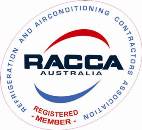The Air-Conditioning, Heating and Refrigeration Institute (AHRI) have released a report on international refrigerant management programs.
The report details a summary of refrigerant management programs, program structures, data showing the programs’ effectiveness and key findings in the form comparisons between the programs’ successes and challenges in seven primary jurisdictions–Australia, Canada, the EU, Japan, the UK, California and the US.
According to its executive summary, the report’s objective is “to characterise refrigerant management and recycling programs implemented in key regions of the world, evaluate their effectiveness and determine the best practices as they relate to the US refrigerant landscape.” The report also stated that “lessons could be learnt from the successes and failures in other jurisdictions.”
These successes include: Canada’s high participation rate, the EU’s regulatory framework enabling member state to develop customised solutions to regulations, Japan’s huge success of motor vehicle refrigerant recycling, no direct cost to the UK consumer for appliance disposal, California’s reporting requirements and economics of ODS phaseout and the US’ voluntary partner programs.
Failures or challenges reported include: Canada’s exclusion of HFCs in their management programs, the EU’s inadequate cover of reporting requirements, Japan’s minor non-compliance on disposal fee payment, the UK’s lack of industry-run bulk collection, reclamation or destruction service, California’s programs only targeting stationary equipment and the US’ inconsistent framework.
Greg Picker, from Refrigerant Reclaim Australia (RRA) was interviewed as part of the research of Australia’s refrigerant management programs. Australia’s successes include: the large RRA membership base, industry-government collaboration, design changes to equipment and inclusion of synthetic refrigerants. Australia’s challenges include: the now-repealed carbon tax discouraging good behaviour, R22 stockpiling and no mandatory leak testing.
The report concluded with eight recommendations for the US to consider for refrigerant management, which was a combination of the programs in the seven primary jurisdictions.
The report can be found and read in full here.



